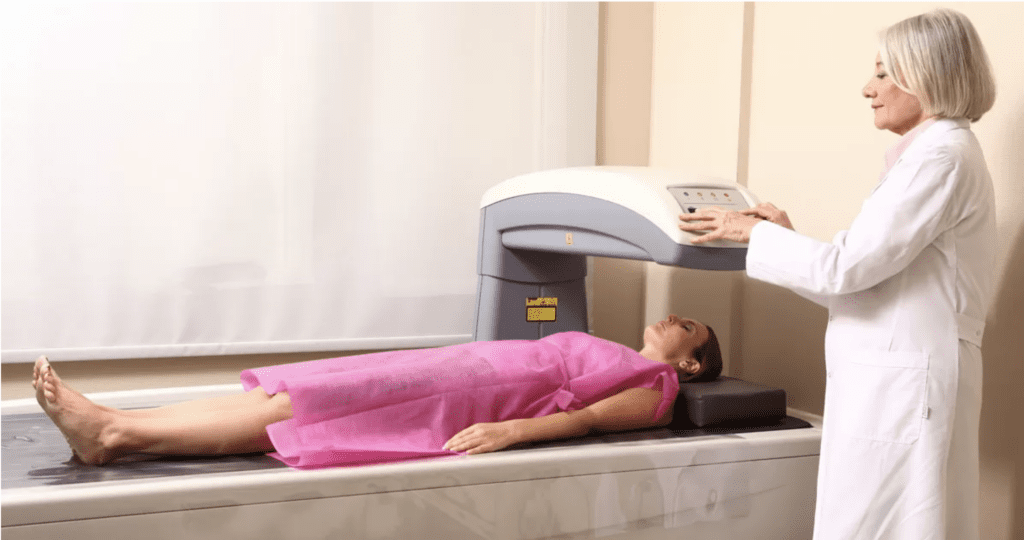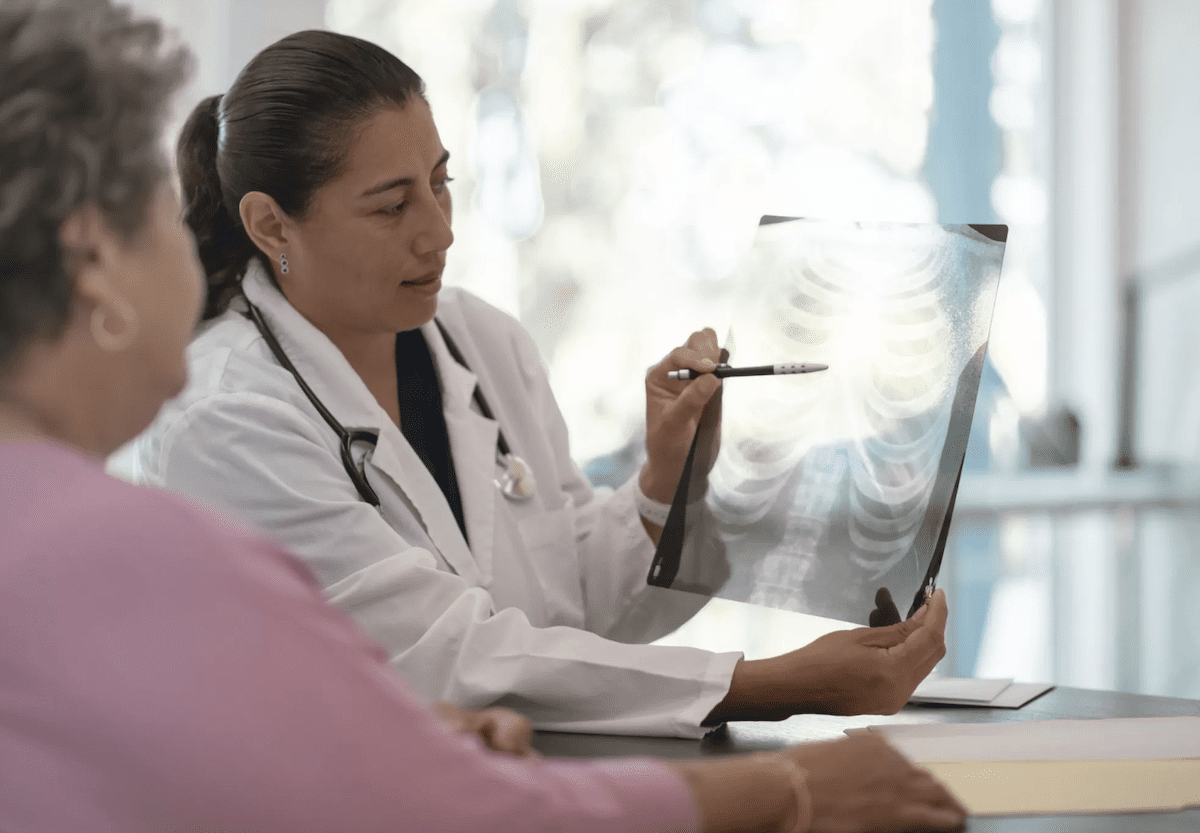
Osteoporosis is diagnosed with a bone density scan (also referred to as DEXA scan, bone density test or bone mineral density test or by the medical name DXA test). It is a simple scan that measures the density of your bones at the hip and spine.
DEXA scan is a quick and painless procedure. You simply lie on a flat padded table, the arm of the machine passes over your body, and the scan takes approximately 10-15 minutes. You remain clothed during the scan. Results from the test will be sent to your doctor.
Do I need a referral for a bone density scan?
Your GP or specialist will provide a referral for your bone density scan after assessing your risk factors for osteoporosis.
Where can I have a bone density scan?
Bone density scans are widely available through most medical imaging outlets (where breast screening, x-rays and ultra-sounds are also available), radiology centres, public hospitals and some specialist practices. A doctor’s referral is required for the scan.

Bone density scan (DEXA scan)
Who should have a bone density scan?
Women and men over 50 with risk factors for osteoporosis need a bone check-up with a DEXA scan. Younger adults with risk factors may also require a test as determined by their doctor.
What will the scan tell me?
A bone density scan will determine if any action is needed to protect your bone health. The result will commonly refer to a ‘T-score’ and indicate if your bones are in the range of either:
- Normal
- Low bone density (called osteopenia) or
- Osteoporosis.
If your bone health is normal, then maintaining adequate calcium, vitamin D, and exercise remains important. If the result shows osteopenia or osteoporosis, it is essential action is taken to protect your bones. Improvements in bone density and bone health can be achieved over time.

Medicare rebates
Your doctor will advise if you are eligible for a Medicare rebate for your bone density. Medicare rebates for a bone density scan apply for:
- People with diagnosed osteoporosis
- Anyone with one or more previous fractures from a minor incident
- Corticosteroids use (common for asthma)
- Women with early menopause
- Men with low testosterone
- Individuals with coeliac disease (or other malabsorption conditions), overactive thyroid or parathyroid conditions, rheumatoid arthritis, liver or kidney disease
- those aged 70 years or over
Where rebates do not apply, patients with other risk factors can pay directly for a bone density scan. It is important you are tested as directed by your doctor.
Note: bone density scans emit a very low level of radiation (much less than a standard X-ray), which is part of the reason a referral is required.
Warning: other bone tests available in some pharmacies or shopping centres, such as Heel Ultrasound, are not the recommended standard test to measure bone strength.
This article is republished from Healthy Bones Australia.

